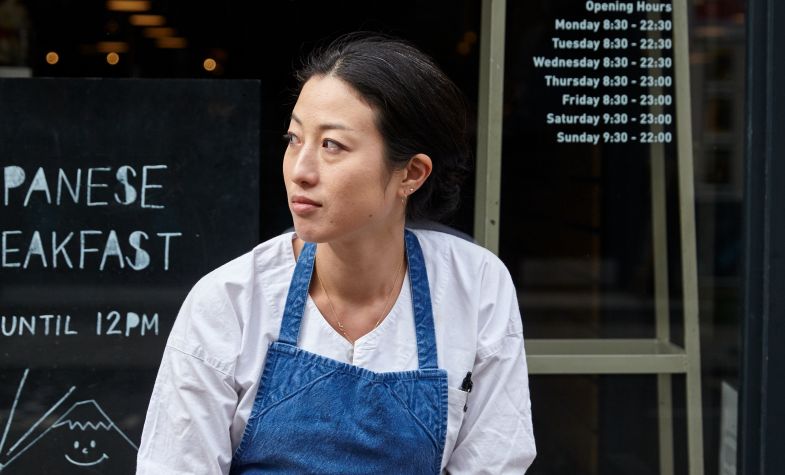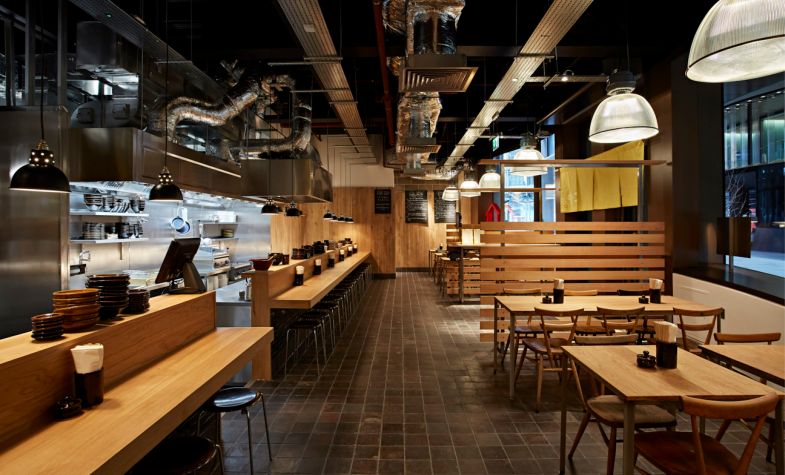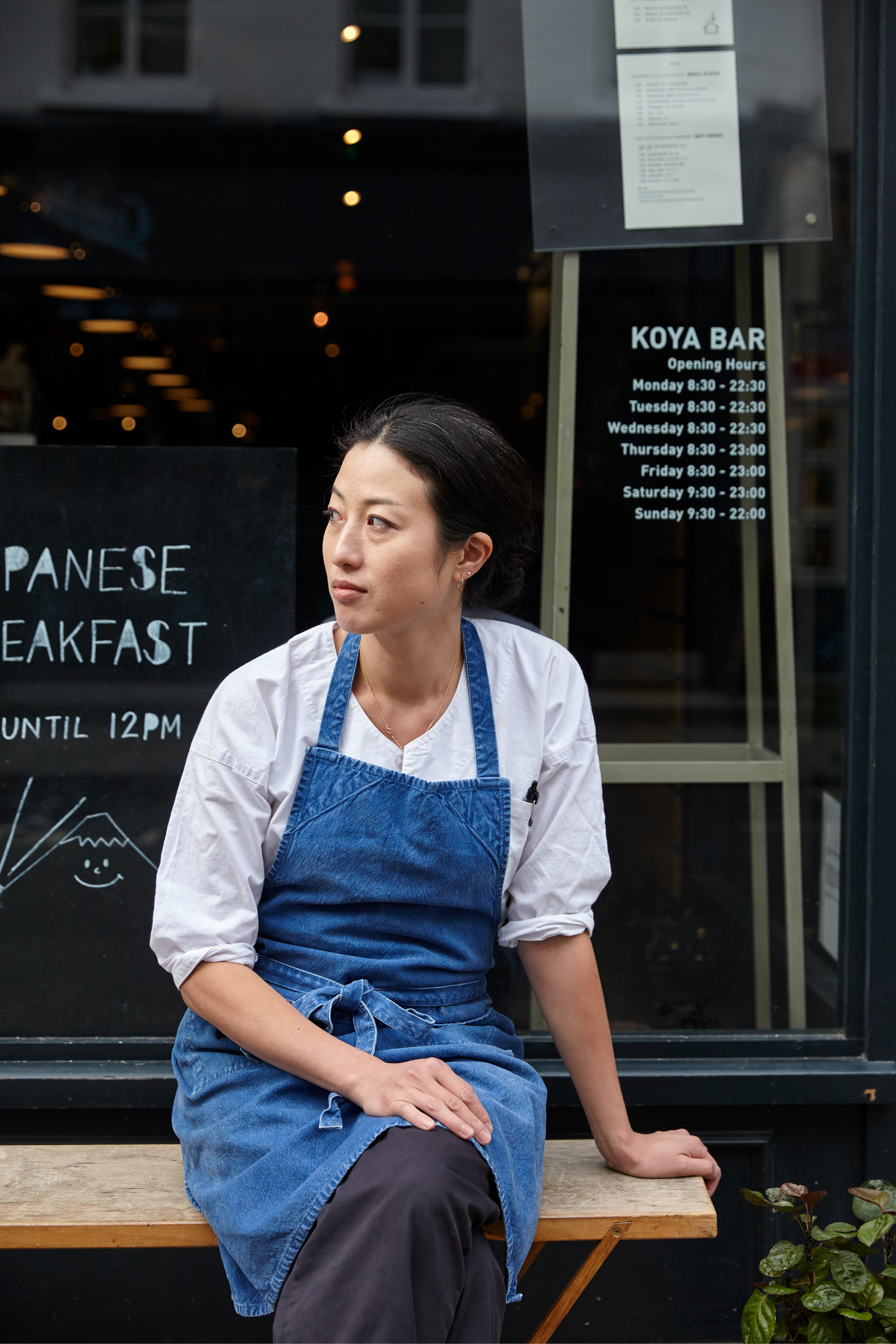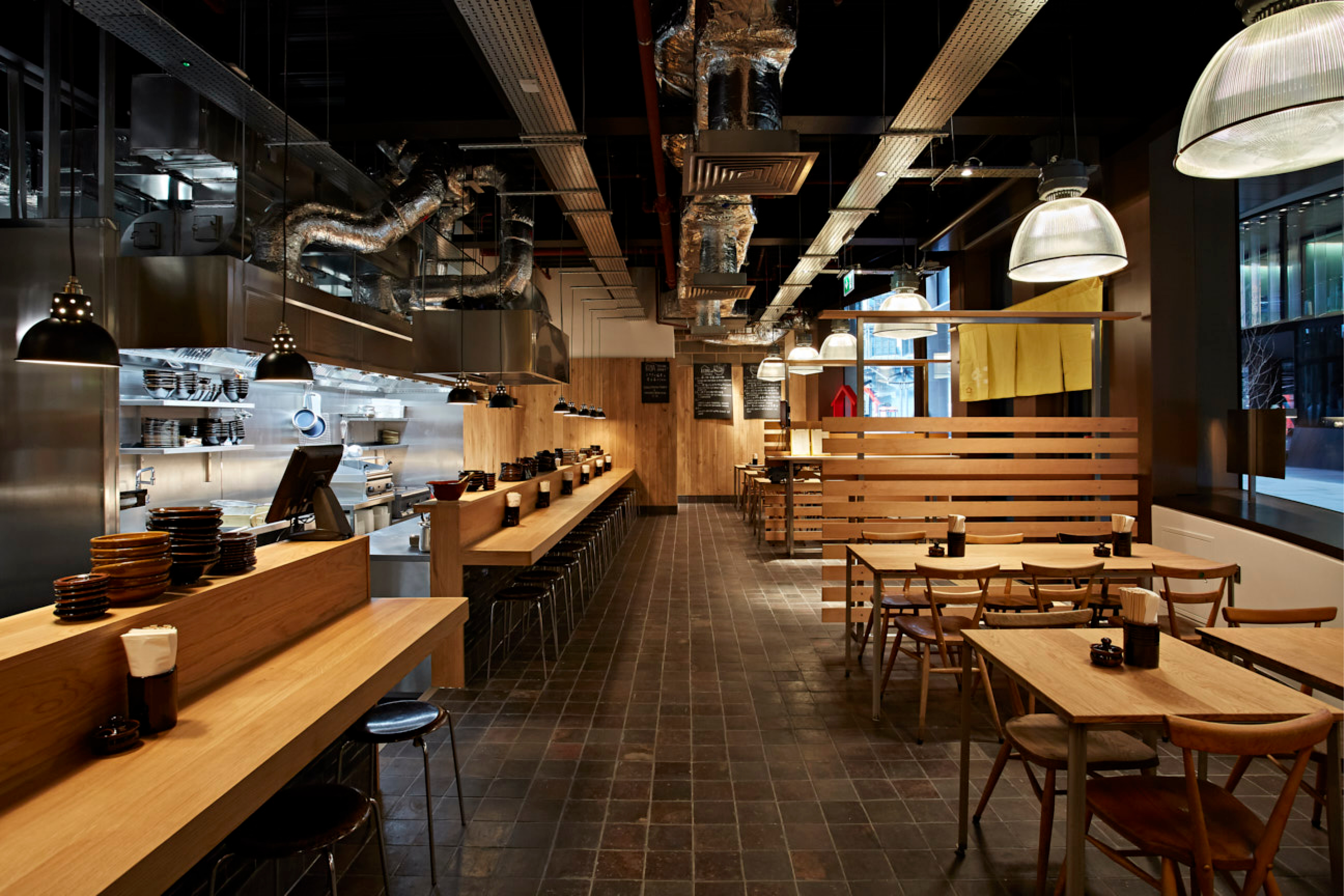When I was about eight or nine, all my hobbies involved making things with my hands and cooking was one of them. I just really enjoyed being in the kitchen. Family mealtimes were always taken together, especially breakfast – it’s something I do now with my husband and two children.
When I was a uni student, I had a job waitressing at an Italian restaurant in Japan. I’d be asking the head chef all these questions all the time and eventually he got tired and asked if I wanted to come into the kitchen. So that’s kind of how I started cooking semi-professionally. Afterwards, I worked in retail for a bit but I went back to cooking after a few years. I just really enjoy it, I enjoy the kick.
When we started to think about setting up Koya, we wanted to do a restaurant that specialised in one particular Japanese cuisine. In Tokyo there will be a restaurant for each type, but in London one restaurant would cover five different cuisines, which meant that the quality was not great and the udon or soba noodles would not be hand-made. We wanted to show the London crowd that’s not how it is. When you specialise in one thing and make it fresh every day, the result is something that is very stable and delicious and really adaptable as well.
We knew we wanted to make noodles every day, we knew we wanted to make soup every day, and after getting that right, we could work on everything else. As the foundation was quite strong, what we ate with it was quite adaptable and we could be quite experimental. That’s the general idea of the restaurant and how we wanted to specialise in noodles. Udon noodles. The noodles and soup are very authentic – the techniques and flavours I use are definitely inspired by my mother and grandmother’s cooking – but some of the things that go with them aren’t, just because we are in London and we can have much more fun. We do have some classics on the menu, of course, but we have some things that are unique to us in London – like the udon noodle English breakfast with egg, bacon and shiitake.
It’s great that we can be so experimental. It’s down to the London food scene, which has been getting bigger and more diverse. Lots of people want to become chefs and food has started to become more adventurous. At Koya, our staff don’t have to have Japanese food experience. Their interest in where a dish comes from has to be the same as mine and has to be treated with care. Very few chefs have Japanese food experience and in a way that’s better, then you don’t have any preconceptions. The right attitude to cooking is what we look for.
We make sure no one is doing crazy hours – I’ve worked with a lot of chefs who want to do more and work doubles but the trouble is it doesn’t last and the quality goes down when people do that. I want to make sure we are as adaptable as possible to everyone’s lifestyle and what they need. I have two children so I have had to change how I work, so I have to make sure I am open to other people’s lives.
I take more of a management role within the business now, which means I have my evenings and weekends, but it is ever changing. If we are short staffed I will head into the kitchen on a weekend. My family is very supportive – my husband is freelance so that can be very handy.
For me it’s important to keep focused on work. For a lot of chefs, it’s easy to forget to be mindful about what we’re doing. You have to always be aware so you don’t make mistakes. It’s something everyone should remember. I am inspired every day by the people I work with. We’re always creating different dishes together and everyone has different backgrounds, so we bounce off each other.
When we opened Koya City it was a bit of a learning curve, as the way we operate has had to change – it’s a different kind of diner there, with a very busy lunch run and then no customers in the early afternoon. But Koya continues to be so rewarding and I’m very happy with how it’s all turned out.








